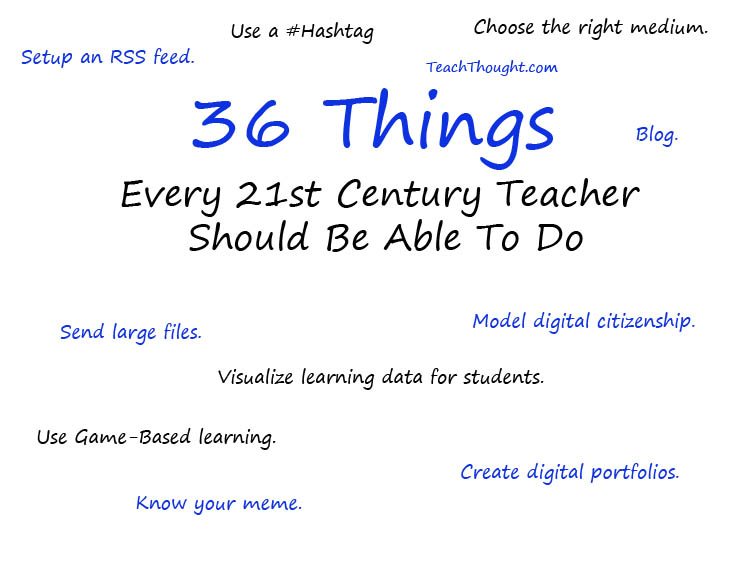Every 21st Century Teacher should be able to do THIS
I sure hope fresh, new teachers are coming into the workforce with at least these areas covered! Presented by Terry Heick and shared on Twitter by my colleague Eric Castro, we present 36 Things Every 21st Century Teacher Should Be Able To Do.
I think we are in the middle of a truly, transformational period in Education. I am finding this landscape of transformation is divided between the educators and leaders that embrace change and the ones that do not. My favorites on this list are #5, 28 and 29.
“Model the value of Questions over Answers (#29)” More than technological proficiencies are at stake here. This radical statement flies in the face of an outdated industrialized Education model, Standardized Testing and Presidential campaigns that promise hard-line accountability which purportedly leads to a better future for our students.
Could there be a critical mass of brave, Educational Leaders tenacious enough to stand up to the compliant masses of Educational Leaders currently in positions of authority?

